Is Gay Marriage A Human Right Or A State Right?
Is Gay Marriage A Human Right Or A State Right?
The question I ask in the title of this Hub gets directly to the heart of the gay marriage debate. I have been somewhat reluctant to address this issue in the past. My views on gay marriage have been evolving over time similarly to President Barack Obama. I am a heterosexual male who grew up in a traditional Protestant household. The values that I was inculcated with from an early age were socially conservative. They have changed greatly over the years but I still had doubts about the extension of marriage to same sex couples until only recently. I felt that "civil union" laws would suffice in satisfying Gay Americans by ensuring their rights and benefits in our society. This view was very myopic in retrospect and missed the key point of the entire debate.
Gay rights activists see their quest for the right to marry as a basic human right. Their goals are at their heart no different than the civil rights or the women rights movements. I formerly saw the issue as simply one of equal benefits under the law while still restricting the title of marriage to heterosexual couples. The United States Supreme Court will rule on two important cases pertaining to this issue sometime this year.
I will begin this article by describing the two cases being argued before the Court. After this I will present the state rights argument followed by the human rights case. Finally I will attempt to synthesize the cases and the arguments while revealing my viewpoint on this issue and how I arrived at it.
The two cases before the United States Supreme Court address different aspects of the gay marriage debate. One case is United States v. Windsor which challenges part of the Defense of Marriage Act (DOMA) that the United States Congress passed in 1996. This law recognizes marriage to be only between a man and a woman for the purposes of federal employee benefits and programs.
Edith Windsor inherited property from the woman she married in Canada in 2007. The United States Internal Revenue Service did not recognize this marriage due to DOMA and assessed Ms. Windsor $360,000 in inheritance taxes. A legal spouse would not be liable for this tax. The United States Court of Appeals in New York struck down the DOMA inheritance tax ruling in favor of Ms. Windsor. United States House of Representatives Republicans stepped in to defend the DOMA law when the Obama Administration refused to do so. They brought this case to the Supreme Court and it was accepted by them.
The second case being presented is Hollingsworth v. Perry. This case was brought to oppose California Proposition 8, narrowly approved by California voters, which vacated the California Supreme Court's decision to allow gay marriages. Ted Olson and David Boies, opposing lead lawyers in the 2000 Bush v. Gore case filed this lawsuit against Proposition 8 in 2009.
In May of 2009, the Alameda County Clerk Registrar denied a marriage license to Kristen Perry and Sandra Steir on the grounds that they violated California's Proposition 8 law that prevents same sex marriages. Olson and Boies took their case and advanced it to the United States Court of Appeals for the Ninth Circuit. Both Governors Arnold Schwarzenegger and Jerry Brown refused to defend this law. The ProtectMarriage.com group led by Dennis Hollingsworth took up the defense of Proposition 8 in this case.
The United States District Court of Northern California ruled that Proposition 8 violated the Fourteenth Amendment's Due Process and Equal Protection clauses during August 2010. The Ninth Circuit upheld this ruling on February 7, 2012. The U.S. Supreme Court agreed to hear this case on December 7, 2012 along with the aforementioned DOMA case.
Now that we understand what the origins and natures of the two cases before the Supreme Court are, I would like to describe the states rights case in this gay marriage debate. The DOMA case may actually be the prime example of an encroachment on states rights even though it is in opposition to same sex marriage.
DOMA is federal legislation that the Congress passed with President Bill Clinton's signature. The political climate of the time was much more socially conservative in regards to gay rights. I believe this legislation was a political pandering attempt aimed at their own political bases. Historically, the definition and administration of marriage has been a state and local issue. These Congressional leaders felt the need to make their voices known on this issue. The states rights question is whether this federal law usurps state laws that allow gay marriage. The human rights question will also weigh in but I will address this later.
The California Proposition 8 case is the more classic example of arguing for states rights over human rights. The people of California voted for the prohibition of gay marriages by a narrow margin in 2008. The question then arose as to whether this proposition was constitutional or a violation of the human rights of homosexuals in California. The U.S. Supreme Court will rule on this case later in 2013. They may make a definitive decision on this matter or they may make a narrower procedural decision which would leave this Constitutional question in limbo for the time being.
The human rights question is clear and the same with both cases in my opinion. Both of these laws ban gay marriage in some or all aspects. Is this a basic human right protected by the Bill of Rights in our Constitution or is it a state right? States and localities have always been the responsible jurisdictions for issuing marriage licenses and instituting the criteria that a couple must meet to obtain one. These criteria have always been quite limited. No State sanctions polygamy. Blood tests are a thing of the past in most states.
Laws against interracial marriage were ruled unconstitutional by the U.S. Supreme Court in the 1960's. Now gay marriage is on the Court's docket. They have been historically slow in overturning state laws in favor of human rights. An issue of this sort needs to have been brewing for many years with a considerable wave change in public opinion for the Court to rule a state law unconstitutional. The Supreme Court ruled that miscegnation laws barring interracial marriages were unconstitutional only after the Civil Rights movement was in high gear and public opinion had shifted. These laws were a century old before the Supreme Court took them on. The question now arises as to whether the gay marriage issue has matured to a point in our national debate where the Court will overrule state law in favor of human rights.
As I stated in the introduction of this Hub, my view on the gay marriage debate has greatly evolved. I originally felt that marriage was exclusively a heterosexual institution though homosexual couples deserved the same benefits and advantages. This viewpoint was enshrined by most states within their own laws. The LGBT (Lesbian Gay Bisexual Transgender) movement grew and as their arguments and reasonings became more clear to me, I began to change my perspective. I most definitely see the parallels between the Civil Rights movement and the LGBT movement. This includes the gay marriage question.
Most of our civil rights laws have easily been expanded to include gay individuals. Why should gay marriage not be included? Religious institutions have the autonomy and the right to decide this issue within their own auspices. That is fair and within our "separation of church and state" inference within the First Amendment of our Bill of Rights. The Declaration of Independence states "We hold these truths to be self evident, that all men are created equal, that they are endowed by their Creator with certain inalienable rights, that among these are, life, liberty, and the pursuit of happiness".
I now believe that governmental entities should be required to perform gay marriages as an expanded part of the 1964 Civil Rights Act. This action would be an appropriate satisfaction of the Declaration of Independence clause that I just quoted. Human rights have overwhelmingly superceded states rights though it often takes many years for these rights to become fully absorbed into our body of laws by our judicial system. The United States Supreme Court may be near the stage where they take this significant judicial step to legalize gay marriage. Several states have already done so and there are now serious questions regarding the status of these marriages across state borders.
The time has clearly arrived for the Supreme Court to act on this divisive issue. The probability is that it will be a close vote due to the sharp divide on the Court between liberal and conservative interpreters of the Constitution. My hope is that our national debate has swung enough in favor of gay marriage for the Justices to feel confident in choosing the human rights view over the states rights option. This view is historically consistent and I feel it is also an inevitable outcome. If not this term, then during a future session.
All heterosexual and homosexual people are created equal if I may change some words from the Declaration of Independence without changing the true meaning of that landmark document. Gay couples are due the equal protection that our Fourteenth Amendment affords all American citizens. I believe that the time is now for the United States Supreme Court to legalize gay marriage. Not only for the reasons I have just stated but simply for the common decency that all Americans should be afforded.

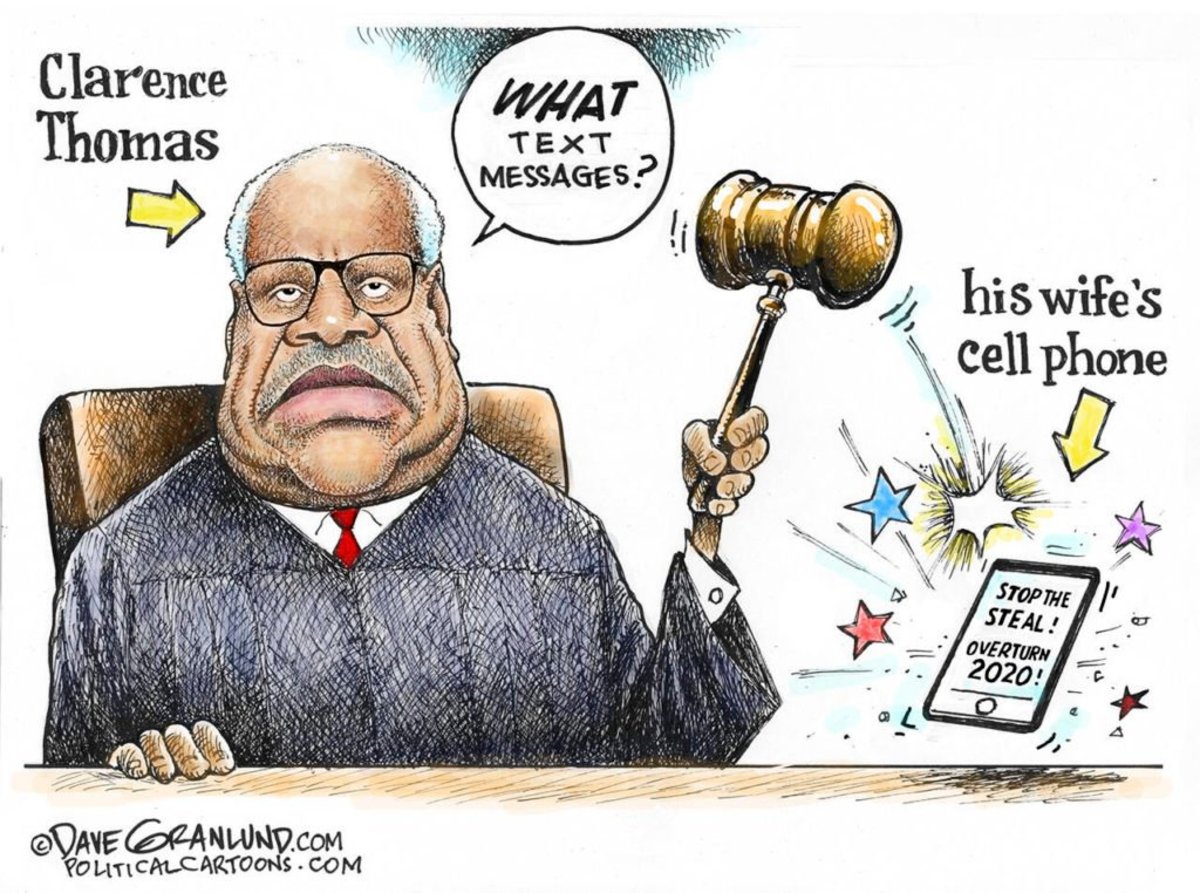
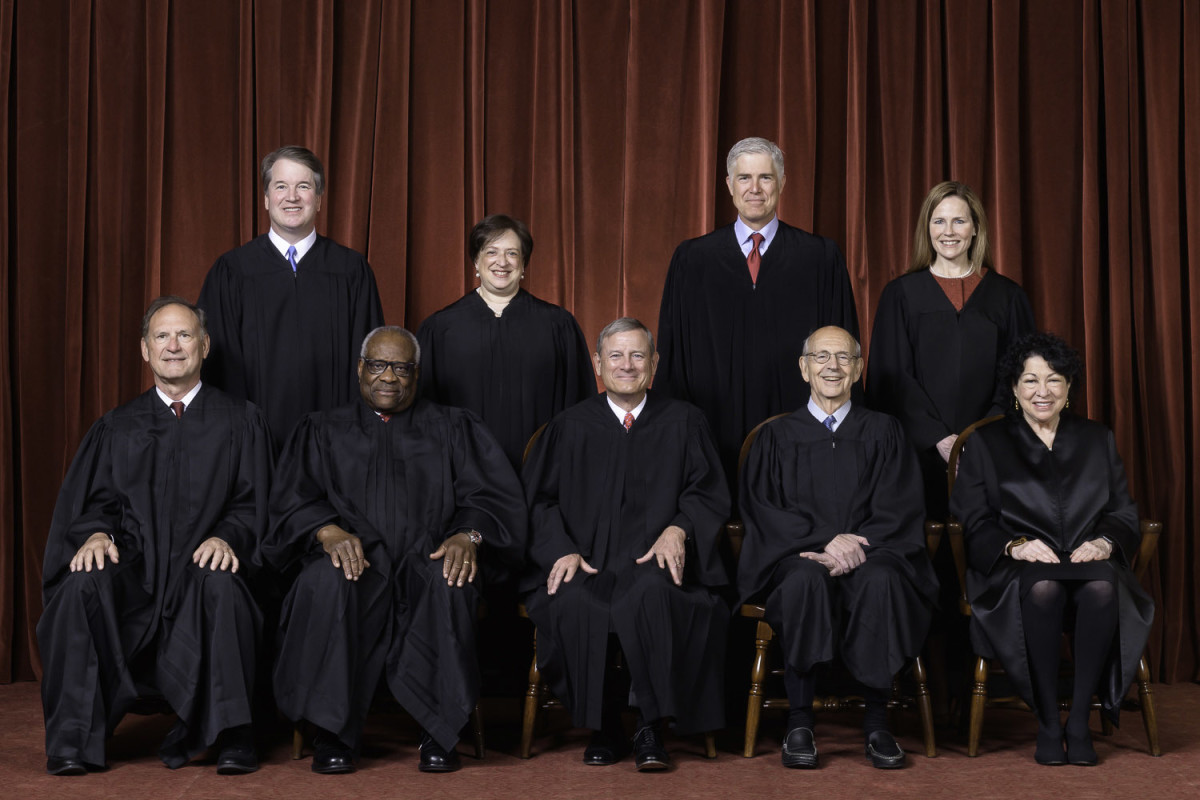
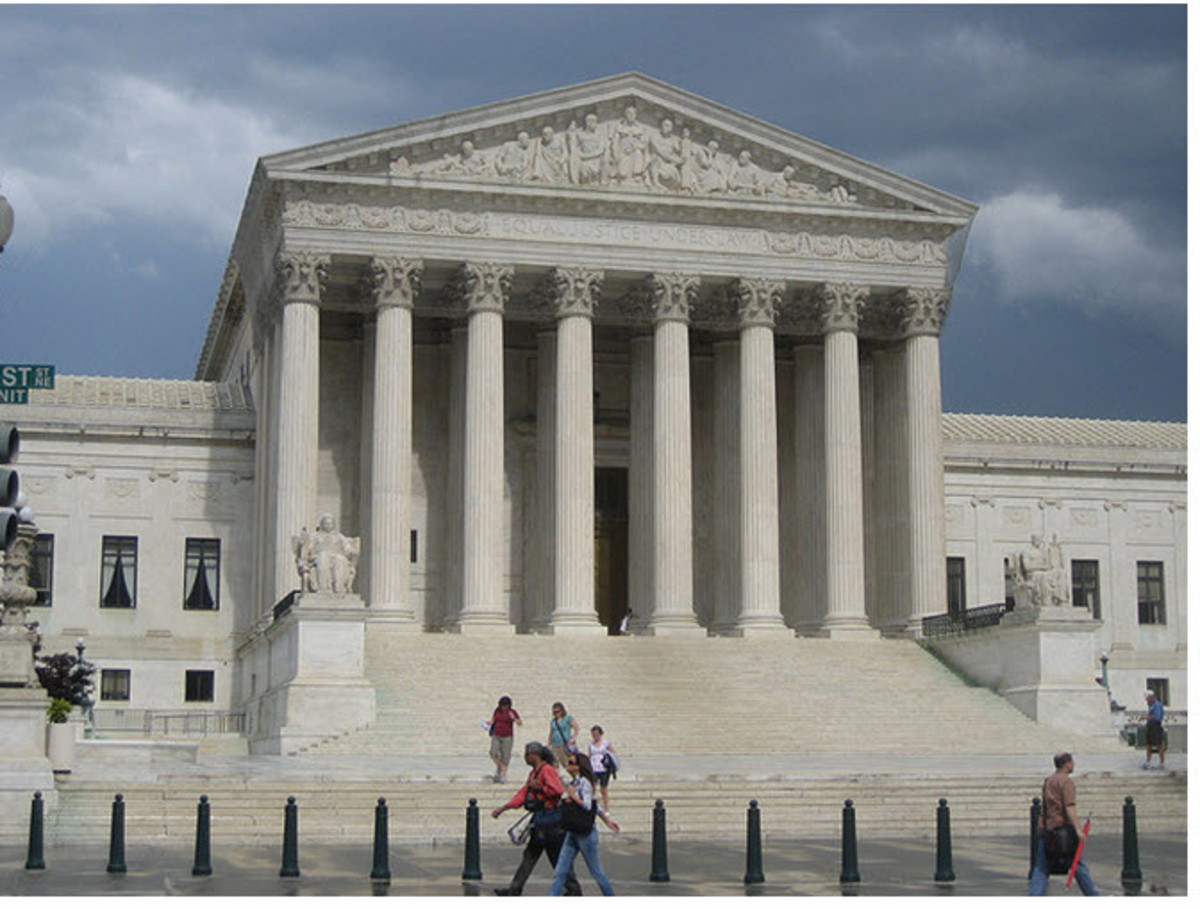

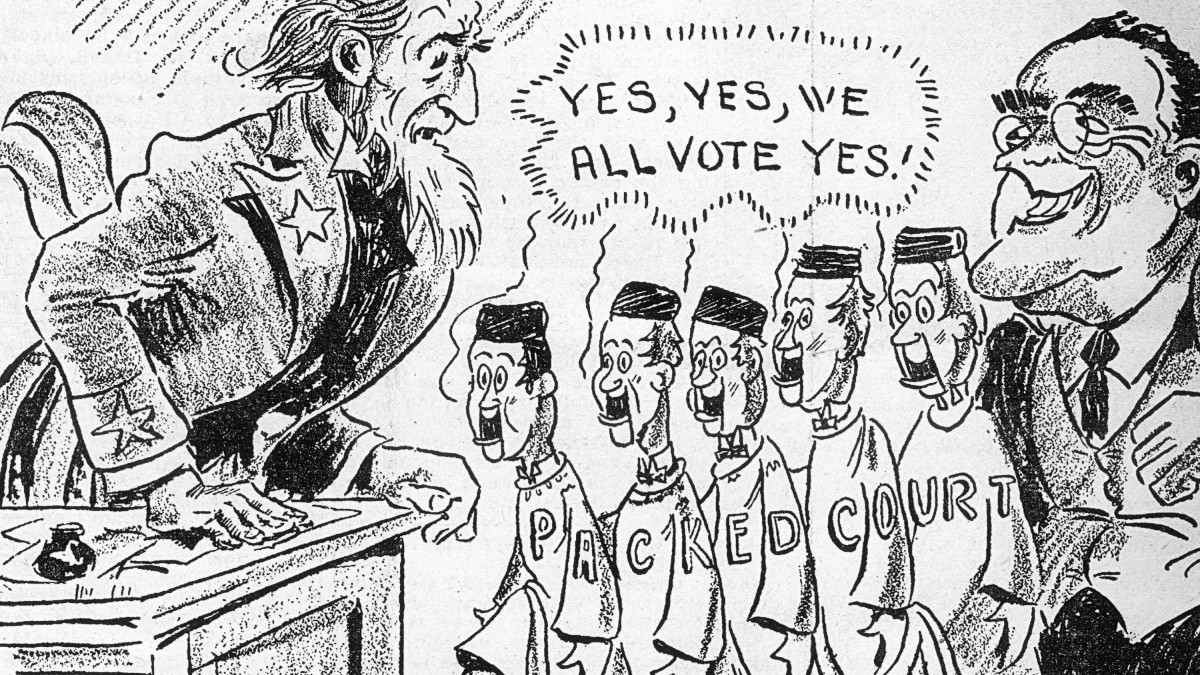
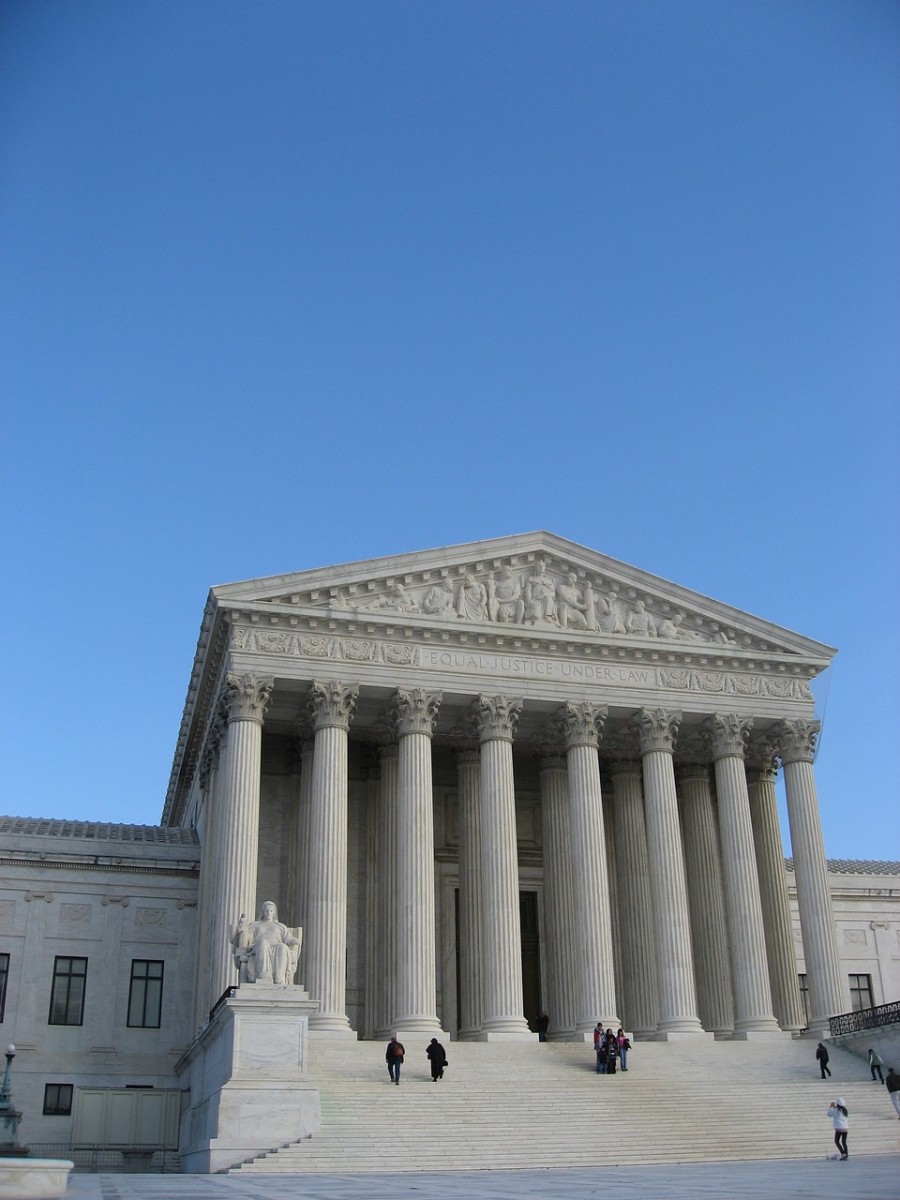
![Gun Rights: Not All Firearms Are Constitutionally Protected As Some Would Have You Believe. [278*3]](https://usercontent2.hubstatic.com/12935107_f120.jpg)
![Texas v. Johnson - The 1st Amendment Right to Burn the American Flag: Something You May Not Have Known [148]](https://usercontent1.hubstatic.com/6789546_f120.jpg)